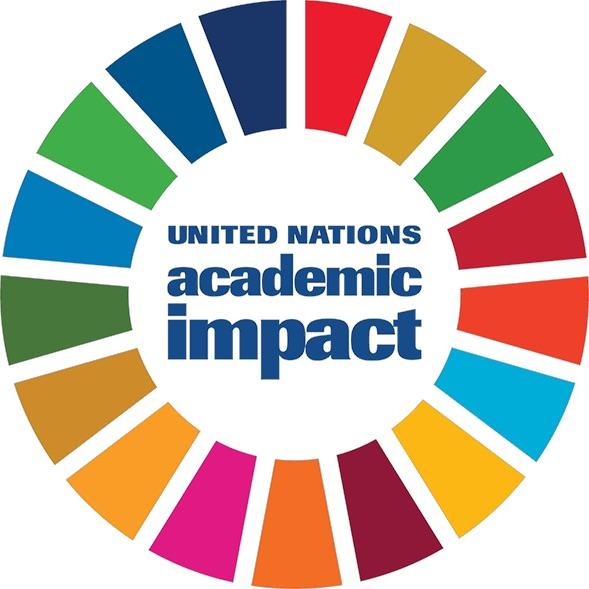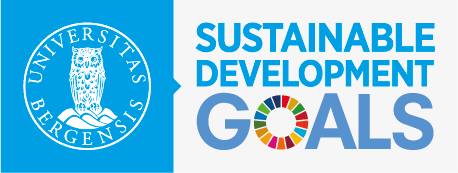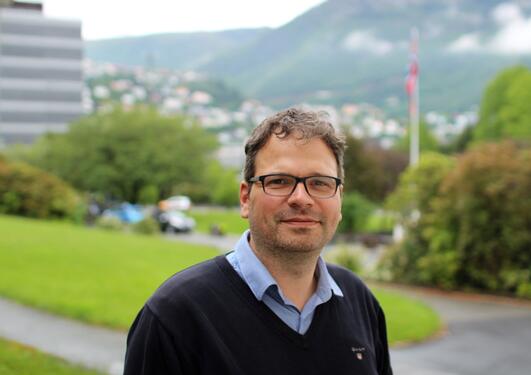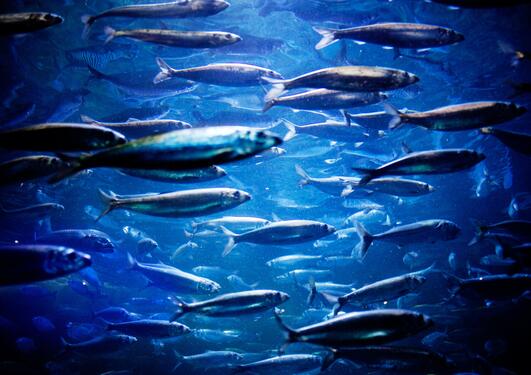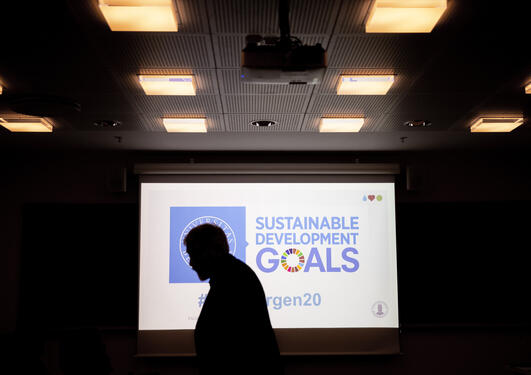Providing data to save our ocean
Reporting on ocean acidification data directly targeting the Sustainable Development Goals is all in a day’s work for Benjamin Pfeil and his data group at the University of Bergen.

Main content
- In a series of articles, United Nations Academic Impact (UNAI) presents ocean science from the University of Bergen, its Hub institution for SDG 14: Life below water in the Sustainable Ocean Series. This is the fourth and final article in the series.
In 2005, Benjamin Pfeil started to specialise in data management for marine biogeochemistry data in the field of climate research at the Bjerknes Centre for Climate Research at the University of Bergen.
Data to support science
His group reports specifically on ocean acidification and this directly supports science on the Sustainable Development Goals (SDGs) target 14.3: minimize and address the impacts of ocean acidification, including through enhanced scientific cooperation at all levels.
“Target 14.3 of SDG14 has its main focus on ocean acidification where access to high quality marine carbon data is key,” explains Pfeil, “our community works and collaborates on a global basis and I got involved in global data synthesis especially for high quality marine carbon dioxide data. Over the years we established the Bjerknes Climate Data Centre.”
Part of global network
The centre has a close connection to the global scientific and data management community.
“I was invited by the Intergovernmental Oceanographic Commission (IOC-UNESCO) to join the group to define the methodology for the SDG target since most data centres do not focus on data related to this target.”
Pfeil’s group and other select institutions are responsible for marine carbon data management for the European Research Infrastructure Integrated Carbon Observation System (ICOS) and responsible for marine carbon data within Copernicus Marine Environmental Monitoring Services.
In 2012, Pfeil became a member of the committee for the International Ocean Carbon Coordination Project and soon after for the Global Ocean Acidification Observing Network – both of which are organised directly under IOC-UNESCO.
Developing quality software
“Many assume that for the SDG targets access to publications is enough, but you have to follow the methodology and direct data access is key to understanding complex relations, patterns and principles. Our job is to make data easily accessible and usable without losing any information,” says Pfeil.
His team and other laboratories have collected global carbon data, which is then reported to the programme International Oceanographic Data and Information Exchange (IODE), which was established by IOC-UNESCO in 1961. This is an elaborate system with data flow systems based on globally set guidelines, including being able to compare ocean development in different parts of the world, which is then coordinated in the Global Ocean Observing Systems (GOOS), a collaboration for ocean observations.
“One of our tasks is to develop quality software to improve automatization of the flow of data. We work with partners globally,” says Pfeil, “observational climate data is moving towards Big Data and one advantage of our work is to structure heterogenous data and make it machine readable. Machine readability is the basis for machine learning, or artificial intelligence (AI), which is essential to handle growing data inventories.”
A showcase of what can be done
The data handled by Pfeil’s group and the global data network provides both scientists and policymakers with essential information for a sustainable ocean, and IOC-UNESCO is publishing a report based on the data in June 2020.
As the world approaches the UN Decade of Ocean Science for Sustainable Development, which kicks off in 2021, the need for this data is stronger than ever. Pfeil works with the University of Bergen’s SDG Bergen Science Advice and Ocean Sustainability Bergen to provide data and research-based knowledge for the decade, including a contribution to the SDG Bergen Policy Briefs with recommendations for target 14.3.
“Our data management work already covers more than just one SDG target, but is a good showcase of what can be done. Not the least it shows possibilities for other marine communities at the University of Bergen and in the overall Bergen science community on what they can contribute with,” says Benjamin Pfeil.
